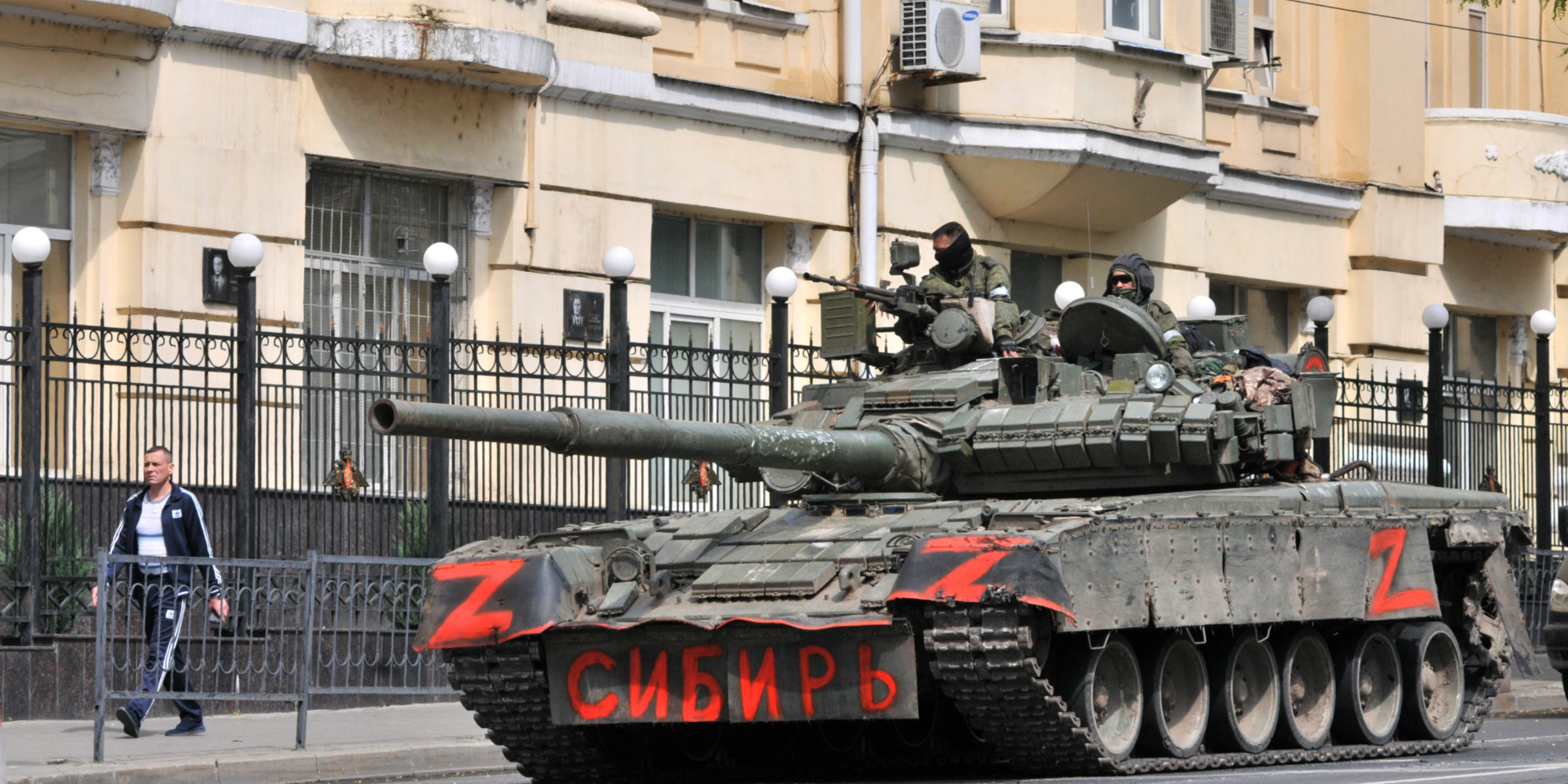A turning point in the war in Ukraine? Saturday morning, Yevgeny Prigojine, the leader of the paramilitary group Wagner, claimed to have taken control of military sites in Rostov, a key city for Russia and headquarters of the Russian army. In the middle of the day, the mercenaries behind this armed rebellion approached Moscow and the Russian army claimed to be carrying out “combat” actions in the Voronezh region, 500 kilometers south of the capital. Vladimir Putin also spoke out, calling the members of the Wagner group “traitors” and opposing the “deadly threat” and the risk of “civil war”, according to him “caused by excessive ambitions and personal interests”. by Yevgeny Prigozhin.
Yevgeny Prigojine “played it all out by attacking Rostov”
But for Alain Bauer, professor at the National Conservatory of Arts and Crafts and head of the security, defense, intelligence division, the Russian president himself created this “golem” which is beyond him. “As soon as we create an individual from scratch, marked rather by his criminal career and his desire for power, there is a moment when he tries to rebel”, he analyzes at the microphone of Europe 1.
According to him, if Evguéni Prigojine rebels, it is “because he knew that his days were numbered. It is, according to what I am told on the Moscow side, that an operation aimed at to relieve him of part of his responsibilities, at least in Russia, and to send him back only to African operations. Sensing this moment of disgrace coming, he risked everything by attacking Rostov”, advances the professor to the National Conservatory of Arts and Crafts.
“An extraordinarily well-run operation”
A key city that was not chosen by chance. Apart from the fact that Rostov is home to the headquarters of operations in Ukraine, Yevgeny Prigojine’s objective is to “decapitate Russian military power”, according to Alain Bauer. “He thought the chief of staff and the Russian defense minister were there. So it was an extraordinarily well-mounted operation.”
“When there is no external opposition in an authoritarian power, (the opposition) is inside and it takes place between (the one who is going to be) meaner, harder, more violent, more brutal than the It is a contest that is not between resistance fighters and an authoritarian power, but between an authoritarian power and its toughest wing, “adds the professor at the National Conservatory of Arts and Crafts. Moreover, he considers that “it is a war inside the Russian system”. “We are in a process of internal settling of scores at the top,” he concludes.
